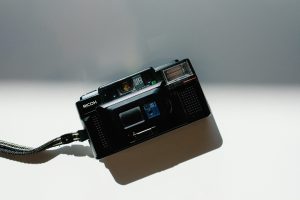Building an Emergency Pantry with Smart Shopping Habits
In today’s uncertain times, having an emergency pantry stocked with essentials is more important than ever. Whether you live in an area prone to natural disasters or you simply want to be prepared for unexpected events, building an emergency pantry can give you peace of mind and save you from a potential crisis. But with the constantly rising cost of groceries, it’s important to be smart about your shopping habits when building your emergency pantry. In this article, we’ll discuss how you can build an emergency pantry with smart shopping habits that will not only save you money but also ensure that you and your family are ready for any emergency.
Why Build an Emergency Pantry?
First things first, let’s discuss why it’s important to have an emergency pantry. As mentioned earlier, natural disasters, such as hurricanes, floods, or earthquakes, can strike unexpectedly and leave you without access to food and other essentials. In such situations, having a well-stocked emergency pantry can be a lifesaver. It can also come in handy during unexpected events like power outages, job loss, or even a global pandemic.
Smart Shopping Habits for Your Emergency Pantry
1. Buy in Bulk
Buying in bulk is a great way to save money and stock up your emergency pantry. Look out for sales and discounts on non-perishable foods like canned goods, rice, pasta, and beans. Make sure you’re not buying more than what you can consume before the expiry date. Also, check for bulk items at wholesale stores or join a co-op with friends or neighbors to split the cost and quantity.
2. Stick to the Essentials
When stocking your emergency pantry, it’s important to focus on essentials that have a longer shelf life. Avoid buying unnecessary items, such as gourmet foods or snacks, as they will add to your expenses and take up valuable space in your pantry. Stick to basics like grains, canned goods, and dried fruits and vegetables.
3. Choose Nutrient-Dense Foods
In an emergency, you want your pantry to be filled with foods that provide you with the necessary nutrients to keep you healthy and energized. Choose foods that are high in protein, such as canned tuna, chicken, or beans, and opt for whole grains like quinoa or brown rice. You can also include powdered milk or meal replacement shakes for a quick source of nutrients.
4. Don’t Forget Hygiene and First Aid Supplies
Aside from food, it’s also important to stock up on hygiene and first aid supplies. Make sure your pantry includes essentials like hand sanitizers, disinfectant wipes, bandages, and over-the-counter medications. These items may come in handy during an emergency when access to medical facilities may be limited.
5. Keep Track of Expiry Dates
Lastly, as you stock your emergency pantry, it’s important to keep track of expiry dates. Rotate items by using older products first and replacing them with new ones. This will ensure that your emergency pantry is always stocked with fresh and consumable items.
Conclusion
Building an emergency pantry with smart shopping habits is not only financially savvy, but it also ensures that you and your family are prepared for any unforeseen events. Keep your pantry well-stocked with essentials, buy in bulk, and pay attention to expiry dates to stay ahead of any emergency and have peace of mind in times of crisis.
In conclusion, building an emergency pantry is all about being prepared and making smart choices. Follow these tips and you’ll have a well-stocked pantry that will not only save you money but also provide you with the necessary supplies in times of need.










